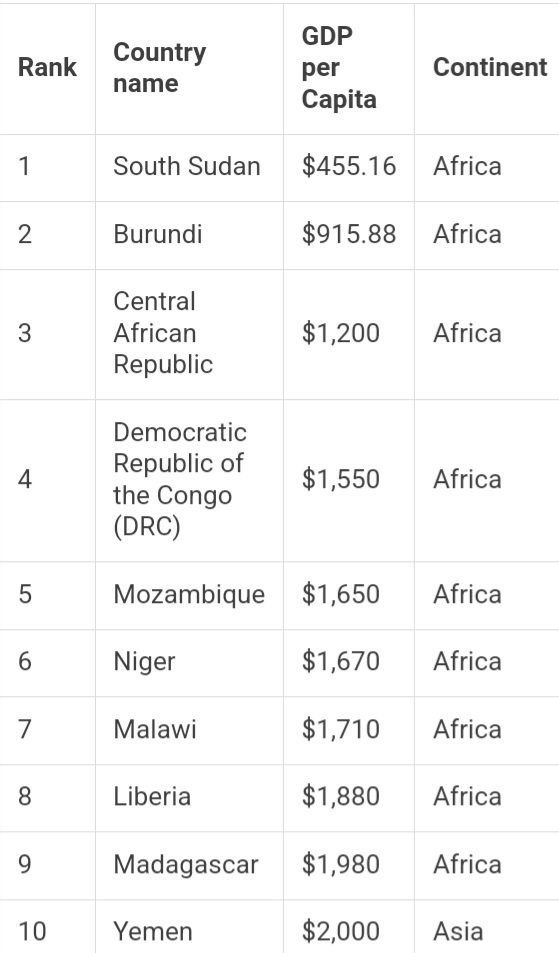Although the International Monetary Fund (IMF) projects that the global economy will remain steady yet cautious in 2024–25, with expected growth of 3.2%, several African countries continue to face significant struggles. This outlook emphasizes the recovery of the global economy following the COVID-19 pandemic and ongoing geopolitical tensions.
Advanced economies are experiencing a slight acceleration, while emerging markets and developing economies are expected to see a modest slowdown, with growth declining from 4.3% in 2023 to 4.2% in both 2024 and 2025.
As 2024 nears its end, the IMF has released its latest projections, ranking nations based on purchasing power parity (PPP) per capita. Europe and Asia dominate the rankings of the world’s wealthiest countries, with Luxembourg leading as the richest, boasting a GDP per capita of $143,742, according to the IMF.
In contrast, many African countries remain mired in extreme poverty despite the abundance of global wealth. The IMF predicts a gradual and costly recovery for sub-Saharan African economies, with growth expected to rise from 3.4% in 2023 to 3.8% in 2024 and 4.0% in 2025.
READ ALSO: Top 10 African countries becoming popular for citizenship among the wealthy
However, risks to this outlook remain skewed to the downside, including funding shortages, high borrowing costs, and looming debt repayments.
South Sudan, the world’s youngest country, which gained independence in 2011, faces enormous economic challenges, including political instability, recurrent conflict, and poor infrastructure that stifles growth. With most of its population dependent on traditional agriculture, ongoing conflict, and harsh weather conditions that frequently disrupt crops, South Sudan remains the world’s poorest country in 2024, with over 11 million people living in poverty.
Smaller and less powerful nations face similar difficulties, with limited resources, underdeveloped financial sectors, and unfavorable tax regimes that deter foreign investment and stifle economic development. Even larger African countries, such as the Democratic Republic of the Congo and Mozambique, continue to struggle with poverty due to internal conflict, political instability, and inadequate infrastructure, all of which hinder their economic progress.
Based on GDP per capita, nine (9) African countries are among the world’s poorest countries in 2024. See the list below.

READ ALSO: How this Black genealogist helped Black Americans to uncover their family histories










